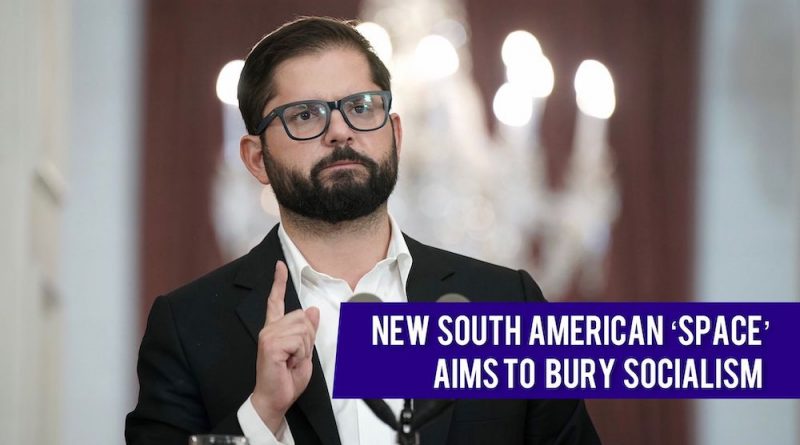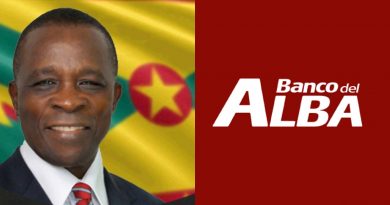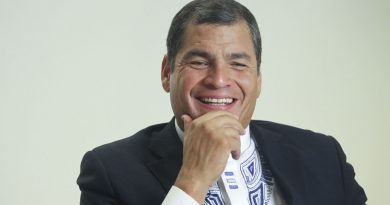Stephen Sefton & Camila Escalante on Boric’s new progressive bloc
Progressive political figures with an orientation more favorable to Washington are forming a new alliance of South American parties and are deliberately excluding the forces that are leading the continent’s liberation processes. Don DeBar interviewed Nicaraguan writer Stephen Sefton and Latin America correspondent Camila Escalante on KPFK Pacifica Radio. Below is a transcription of last week’s segment.
Don Debar:
This weekend, a conference named ‘Building the Future ‘will take place in Santiago, Chile, hosted by Chile’s president Gabriel Boric. It’s being billed as a new discussion forum for the left. However, like most things, there are contradictions. To probe some of those, we spoke with journalists Stephen Sefton in Nicaragua and Camila Escalante in Brazil via Skype on Wednesday.
Camila Escalante:
They’re in some of the initial stages of the formation of a so-called leftist bloc, a block of South American left wing parties which say they want to sort of be a new progressive face for the future that would actually stand in contrast with, and be an alternative to, the Sao Paulo forum. Sao Paulo forum being a group of parties that includes all the socialist parties of all of Latin America.
So this new block would exclude countries like Venezuela and Venezuela’s United Socialist Party (PSUV). And they say they want to talk about feminism and human rights in the climate. But we also know that these are the countries that these are some of the leaders, and where we’ve seen some of the most criticism of the so-called human rights situations in countries like Venezuela and Nicaragua.
It really seems that they’re trying to form something that deliberately excludes anti-imperialist parties. And it’s kind of a collection of parties that have had an orientation that’s more favorable and aligned with Washington.
Stephen Sefton:
Yeah, and from from the point of view of people here in Nicaragua and probably also in Venezuela, and we we see this kind of move as an attempt to divide popular movements, the revolutionary governments that are trying to work together towards integration, principally through organizations like the the CELAC, the community of Latin American and Caribbean states.
Although this is, as you say, it’s at the level of political parties, apparently. And obviously, the underlying idea is to put distance between themselves and the much more influential and much more solid record of the Sao Paolo forum, which has been going since, what, 1990, 1991, when it was originally set up. And it’s it’s as Camila said, it’s the it’s the forum for all the progressive radical revolutionary political parties in the region.
So for these essentially social democrat governments to start this initiative is very obviously a means of dividing what should be a united front against the imperialist interventions and influence and the different ways that the United States and its European allies seek to precisely to prevent Latin America from uniting and becoming a solid, integrated regional bloc.
Don Debar:
I mean, we don’t have Hugo Chavez, we have Maduro still there. You have Diaz-Canel, the US in and the Cuban Revolution installed. And more or less, you know, it’s the institutional power now in Cuba. For a long time, the government in Nicaragua, where Daniel Ortega carries between 60 and 80% positives depending on when the polls taken and the and again, the Sandinista revolution, they’re there.
There’s a solid base of, you know, forces for integration. Standing up for sovereignty, pushing against the Monroe Doctrine and and in general, also, as we’ve discussed, the growing commercial ties, particularly with China. But again, these contradictions. What do you think could come out of a conference where the most anti-imperialist forces are kind of being banned?
Camila Escalante:
Well, absolutely nothing. I mean, if one of their key themes or issues is going to be the issue of human rights, then they need to have front and center the inclusion of the PSUV: The United Socialist Party of Venezuela and also the Movement Towards Socialism (MAS). Those have been the two most successful projects or political parties that have brought out important policies in their countries in terms of human rights.
We’re going towards five million homes built under the Bolivarian Revolution in Venezuela. Surely that’s one of the best human rights records in South America. In Bolivia, the human rights indices are through the roof in terms of people getting out of extreme poverty and poverty and now being included economically. Those economic rights are what we equate to human rights.
Also, talking about the contribution not only to the human rights of their own people, but what their contribution is as parties to the region and multipolarity. So I don’t think there’s any use of it at all. It makes us ask, what are they going to be using this bloc, this forum, this platform for?
Stephen Sefton:
I think the answer to that is probably very clear. What they’re trying to do is to set themselves up, to maintain a strong relationship with the United States and the European Union. And I think it’s relevant in this in the global context to talk about Sergei Lavrov and the Chinese officials have said there is a plural centric, a multi centric, multi-polar world developing, and whose side are you on?
Because the united they they aren’t saying that. They aren’t saying we want you to be on our side but the United States is. And so this seems to me a kind of a largely empty gesture, as Camia has said, in that direction, but also, I want to make the point that I think this comes down to something really fundamental in the region, which is, you know, what what is public policy for from the point of view of a revolutionary government, from the point of view of a social democratic government, and obviously and it’s of a relevance also for right wing governments.
I think what is the difference between the revolutionary governments and all the rest is that their focus is on the needs and aspirations of the human person, and that involves some kind of class-based policies to favor the impoverished majority who are the class historically, in Latin America and the Caribbean, been exploited. And so what revolutionary governments like there is in Venezuela, as Camila has pointed out, in particular in relation to issues like housing or health or education, the revolutionary governments in Cuba, Venezuela and Nicaragua, have put very strong emphasis on the needs and aspirations of the human person and the needs and aspirations of the families of the impoverished majority.
This socialist Social Democrat initiative that Camila has explained to us is doing, is shifting that towards a kind of identity politics and looking very superficially as human rights. So they’ll talk about civil and political rights, but they’ll leave out of their discussions the fundamental rights to health, to education and so on.
I agree very much with Camila that nothing is likely to come out. Certainly nothing substantial is likely to come out of this proposed conference. The United States and the European Union and their political allies in the region, among whom we must count now, people like Gabriel Boric, for example, and others, they want to slow down the achievement of fundamental rights of a decent life for the region’s impoverished majority. But they are not going to stop that process, all they are going to do as they’ve done over the last 20 years is slowed down.
Don Debar:
That’s right. I mean, the needs are so urgent and so overdue that it is something that’s going to happen.
Thank you both for spending some time with us this week and we’ll speak with you again next week. For KPFK, I’m Don Debar.
You can listen to the segment here.
By Kawsachun News



